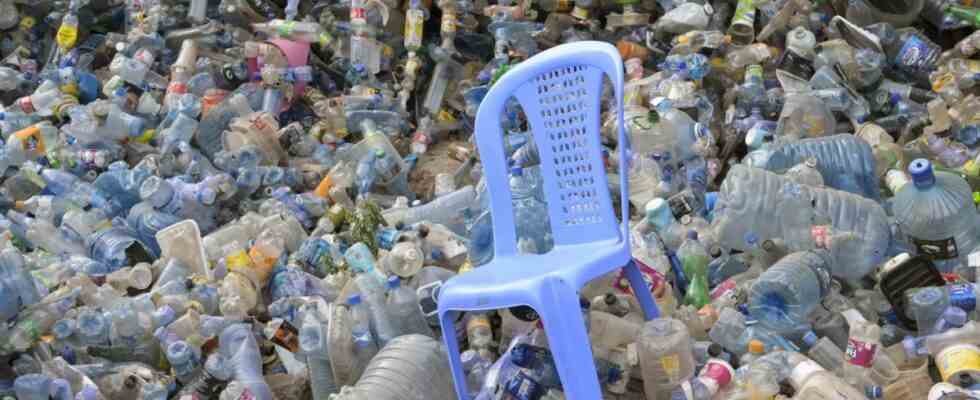The pollution of the environment by plastic and the health consequences of the production and use of plastic products cost humanity hundreds of billions of euros every year. Plastic manufacturers and users and their liability insurers will also have to pay a small part of this in the future. This is the assumption of the authors of a new study. It was published by the Minderoo Foundation, a non-profit foundation from Australia, together with the UN Initiative for a Sustainable Insurance Industry.
They argue that growing environmental awareness is accompanied by new technological possibilities for identifying the originators of waste. Because technical progress makes it possible in more and more cases to assign waste even in small concentrations to the polluter. As a result, lawyers could use this information for liability lawsuits against plastic companies, along the lines of ongoing lawsuits against industrial companies over the climate crisis.
The authors estimate the financial risk facing business and insurers at $20 billion by 2030 – just in the US. A large chunk of this would affect chemical manufacturers, most notably phthalates. Some of these plasticizers are banned in toys and baby articles in the EU.
If the companies are held liable, at least part of the claims will also end up with the liability insurers. Because they have not yet priced the risk into their policies, there may even be a problem with solvency, the authors of the study believe. You are therefore demanding that the supervisory authorities for insurers take a close look here.
According to the study, once insurers are aware of plastic waste as a possible cause of damage, they should help customers with appropriate incentives to change their behavior. “Insurers play a crucial role in reducing risk,” the authors write. Neil Beresford of the international law firm Clyde & Co, which was involved in compiling the study, predicts that it will be another five years before the lawsuits begin. During this time, legislators and regulators should prepare accordingly.
In Germany, companies are reacting calmly to the study
German industry reacted calmly to the warning. “The whole thing is an advertising brochure for the US litigation industry,” says Martin Engelmann, general manager of the Plastics Packaging Industry Association. The legal systems are so different that comparable lawsuits cannot be expected in Germany. It is fitting that the Association of the Chemical Industry has so far not been aware of the issue as a liability risk and has therefore not commented on it. The American Chemistry Council, on the other hand, immediately responded to the study. However, it remained vague, the association accuses the authors of “reality”.
Packaging manager Engelmann also does not see the causes of the waste problem in Germany. “Plastic in the world’s oceans is a huge global problem, but it mainly comes from Asia.” Karsten Hunger, Managing Director of the Industry Association of Paper and Film Packaging, wants to make consumers more responsible. As an example, he points to Singapore, where there is no garbage on the streets because the penalties are so severe.
“We’re taking on more responsibility than we have to,” lobbyist Hunger defends his industry. He refers to the draft for a “one-way plastic fund law”. That’s really what it means and is the planned implementation of an EU directive. According to this, manufacturers of disposable packaging would have to pay via the fund for the disposal of waste in public spaces.
Lawyer Neil Beresford warns European companies against lulling themselves into a false sense of security. “You should not underestimate the potential for litigation in non-US regions.” Of course, phenomena such as class action lawsuits are primarily an issue in the USA, but other areas such as employer liability in connection with damage to health are more strictly regulated in Europe.

